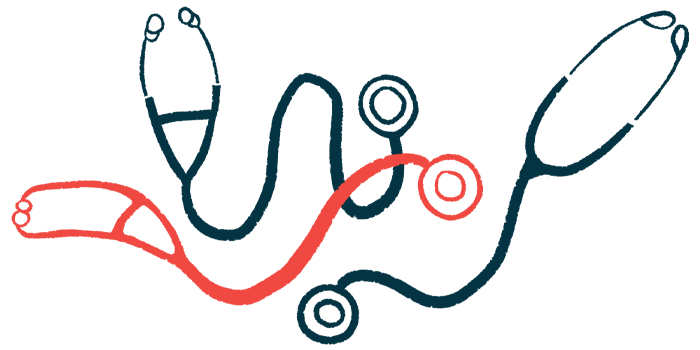Grant Helps Eko Develop AI Algorithm for Detecting PH
Data from noninvasive heart tests will be collected with smart stethoscopes

Digital health company Eko has been awarded $2.7 million from the National Institutes of Health (NIH) to develop an artificial intelligence (AI)-based algorithm that can detect pulmonary hypertension (PH) and classify its severity.
The algorithm will analyze data from two common, noninvasive heart tests collected via Eko’s digital smart stethoscopes. Machine learning, a type of AI that learns how to predict outcomes by analyzing large amounts of data, will be used to translate data from these heart tests into meaningful predictions.
Eko hopes the new identification tool will enable PH to be diagnosed sooner and more accurately, allowing patients earlier access to life-saving treatments compared with existing diagnostic tools.
“This machine learning algorithm has the potential to be a low cost, easily implementable, and sustainable medical technology that assists healthcare professionals in identifying more patients with pulmonary hypertension,” Gaurav Choudhary, MD, said in a press release. Choudhary is principal investigator and director of cardiovascular research at the Lifespan Cardiovascular Institute in Rhode Island. He also is director of cardiovascular research at the Alpert Medical School of Brown University.
Diagnostic delays in PH are not uncommon. More than two years pass after symptoms begin before a diagnosis is reached in some cases, according to Eko. Such delays can increase the risk of severe outcomes significantly, including premature disability and heart failure.
PH usually is diagnosed by tests of heart function, including echocardiography and right heart catheterization. But these approaches are costly and require a heart specialist. Right heart catheterization also is invasive, requiring the insertion of a catheter into the pulmonary artery that supplies blood from the heart to the lungs.
Eko’s algorithm will analyze data from two noninvasive heart tests — phonocardiogram (PCG) and electrocardiogram (ECG). PCG detects sounds and murmurs from the heart, while ECG measures the heart’s electrical activity.
Both types of data can be collected using Eko’s DUO ECG + Digital Stethoscope, a smart stethoscope with a built-in ECG technology. Data from the smart stethoscope are streamed to the Eko app on a smartphone, tablet or computer, where signals are analyzed.
The company will pair with Lifespan Health System’s Cardiovascular Institute to collect real-world data with the stethoscope, which will be used to develop a machine learning prediction model for PH based on these two heart tests.
“The major goal of this study is to determine whether an Eko algorithm based on phonocardiography coupled with electrocardiography can identify the presence and severity of pulmonary hypertension when compared to the current gold standard,” Choudhary said.
SBIR grant
Funding for the study comes as a Small Business Innovation Research (SBIR) grant from the NIH’s Department of Health and Human Services. It marks Eko’s fourth SBIR grant from the NIH, altogether amounting to $6 million in funding for cardiopulmonary machine learning development.
A previous round of SBIR funding contributed to Eko’s development of its now FDA-approved Eko Murmur Analysis Software. That software uses an algorithm to help healthcare workers identify heart murmurs and valvular heart disease at routine clinic visits using the smart stethoscope. It was developed in collaboration with Northwestern Medicine Bluhm Cardiovascular Institute in Chicago, Illinois.
“This SBIR grant is a testament to our focus on developing pioneering AI for early detection and management of cardiopulmonary diseases,” said Connor Landgraf, co-founder & CEO of Eko.
“Early detection and intervention play a critical role in preventing the progression of heart disease,” Landgraf said. “Our focus is to make AI-powered tools cost-effective, easily accessible, and scalable that support clinical decision-making, so millions of patients will get information sooner that could extend their lives. This is how we change the standard of cardiac care.”








